Labour’s plan for our railways: How we will deliver for passengers with Great British Railways
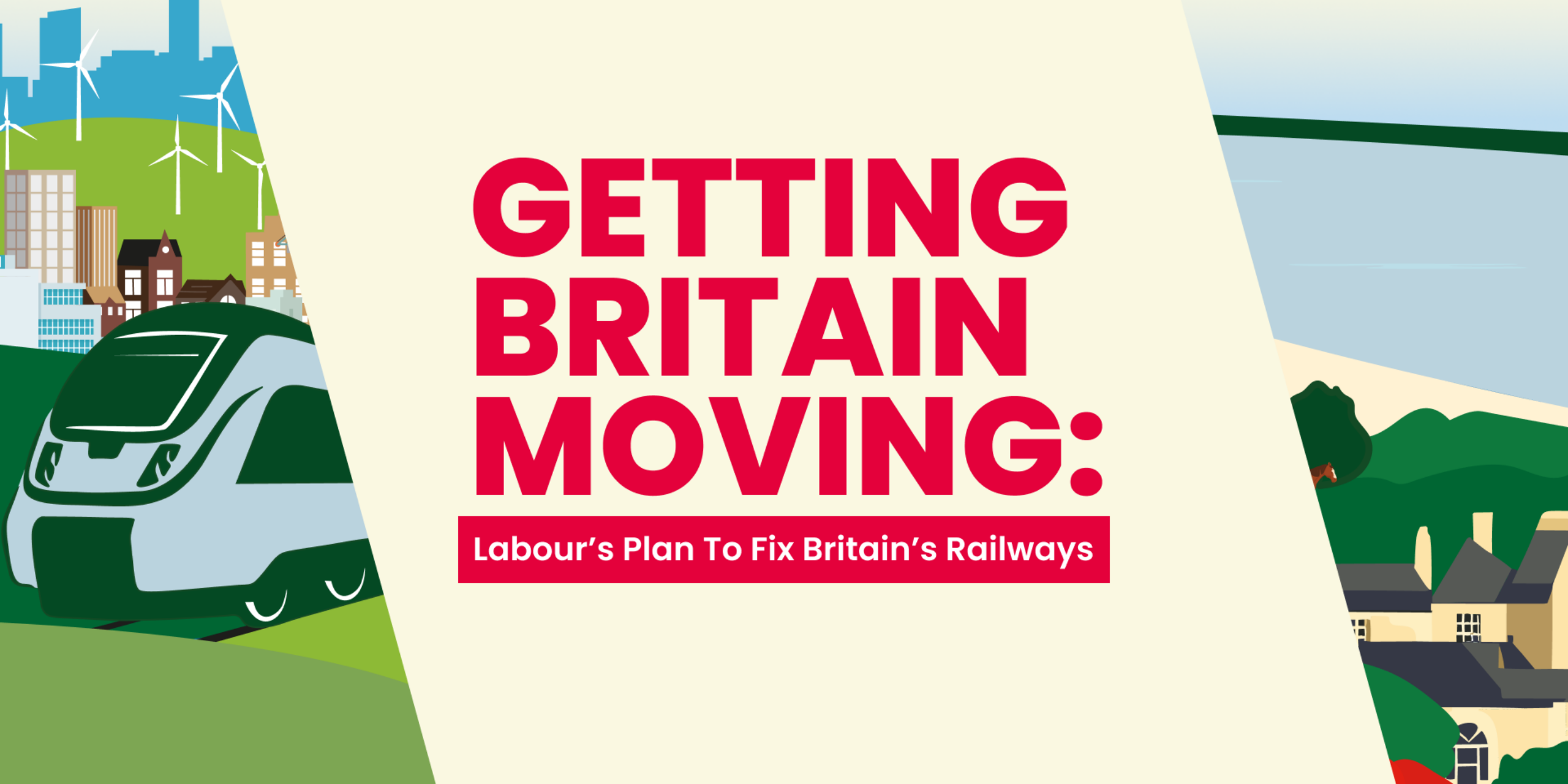
Britain’s railways should be a source of pride, not exasperation. As the country which created the railways, they are an iconic part of our heritage, and have played an essential role in enabling people to see our country, spend time with loved ones, and seize economic opportunities for more than two centuries.
Labour’s plan is to create a unified and simplified governance structure that places passengers at the heart of the goal, objectives and incentives for the railway, and to bring train operators under public ownership and control.
Public ownership for our railways is about the practical need to deliver better services where they have failed.
Even the Conservatives have had to bring failed franchises into public ownership – most recently TransPennine Express – just like the last Labour Government brought infrastructure into public ownership and control in 2001 after the disastrous collapse of the privatised Railtrack.
To achieve high standards in our rail services, a Labour Government will establish a new, arms length body, Great British Railways. This will be led by rail professionals and industry experts and be responsible for the day-to-day operational delivery of the railways, for ensuring infrastructure and services work together, and for innovations and improvements in the experience of passengers and freight users.
Labour’s plan will fix our railways for the benefit of passengers and the taxpayer. It can usher in a decade of growth, innovation and service improvement, with the railways playing their part in Britain’s national renewal.
Getting Britain Moving
Read the full document on how Labour will fix Britain’s railways
How Labour will set high standards on our railways
A Labour government will set the strategy for Great British Railways, to make sure it delivers for passengers against our six key objectives:
1. Reliable – so that people can have confidence in their journey, whether it’s a one-off trip or their daily commute.
2. Affordable – so that prices are kept, wherever possible, at a point that works for both passengers and taxpayers.
3. Efficient – so that people know that their journey will be as straightforward as possible, from booking to travel, and to provide better value for the travelling public and taxpayer alike.
4. Quality – so that passengers have the service experience they have a right to expect.
5. Accessible – so that our railways are available for everyone to use.
6. Safe – so that people don’t worry about their safety on the railway and are not in fear of accidents or crime while travelling.
We will establish a powerful new passenger watchdog – the Passenger Standards Authority – to independently monitor standards and champion improvement in service performance against these measures.
Labour’s vision for passengers
Every decision – from the long-term strategy set by ministers to the operational decisions of executives and professionals – will be tested against how the railway delivers a reliable, affordable, efficient, quality, accessible, and safe railway for passengers.
Passengers should see and feel the improvements we make and begin to shed the frustrations they experience in today’s unreliable system. Specific improvements will include:
- Automatic delay and cancellation refunds
- More integrated timetables, ticketing, and fares
- An ambition to introduce a best-price guarantee, like Transport for London offers
- Digital season tickets
- A single new passenger watchdog – the Passenger Standards Authority
- Clear standards that need to be met by all services
- Better mobile connectivity, including moving towards 5G
- Better integration with other modes, such as buses and cycle hire.
What is Great British Railways?
Labour will establish Great British Railways – an arm’s length body and ‘directing mind’ of empowered rail industry experts and professionals, tasked by the Secretary of State with improving the rail network with a relentless focus on passengers and freight customers.
Within the clear strategic direction set by the Secretary of State for Transport, Great British Railways will be responsible for planning timetables, improving services, and the operation, maintenance, and improvement of rail infrastructure.
Great British Railways will have a robust governance structure, accountable to the public and the UK and devolved Parliaments and operating within a long-term strategy for services and infrastructure determined by the Secretary of State.
It will bring finances together into a single body, enabling it to take long-term decisions to increase patronage and deliver improvements for passengers and freight without the micromanagement of the current system or of British Rail – but while remaining accountable to the Secretary of State, whose agreement will be necessary for significant decisions around services and infrastructure.
What Labour’s modernised railways will deliver
There are six key areas where our approach to the railways will deliver for passengers.
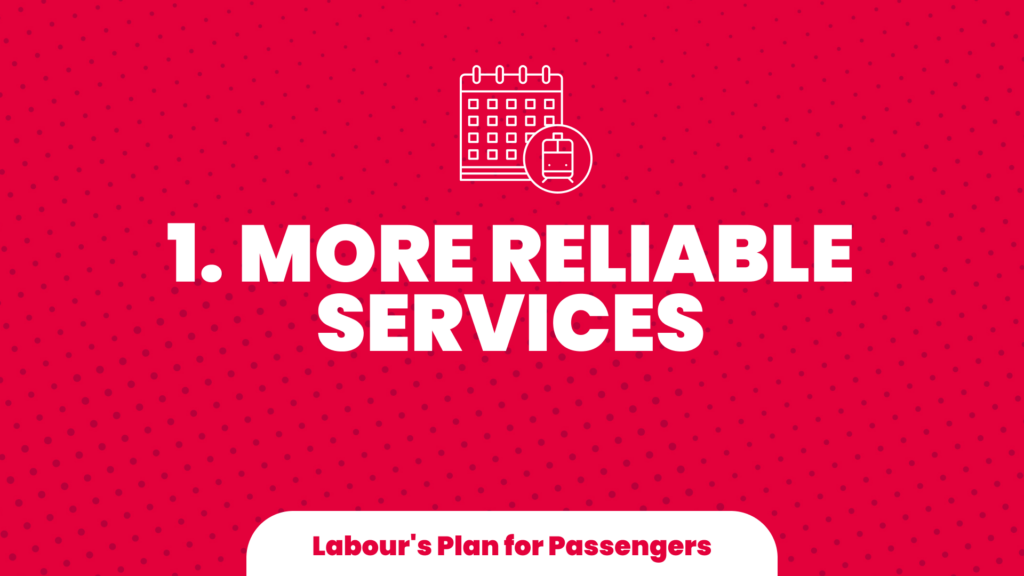
1. More reliable services
A unified system will plan and deliver an achievable, reliable timetable and ensure that the network is able to deliver it, so that the services promised to passengers are delivered. Better coordination of the timetable and engineering works will reduce delays, improve reliability and reduce cost.
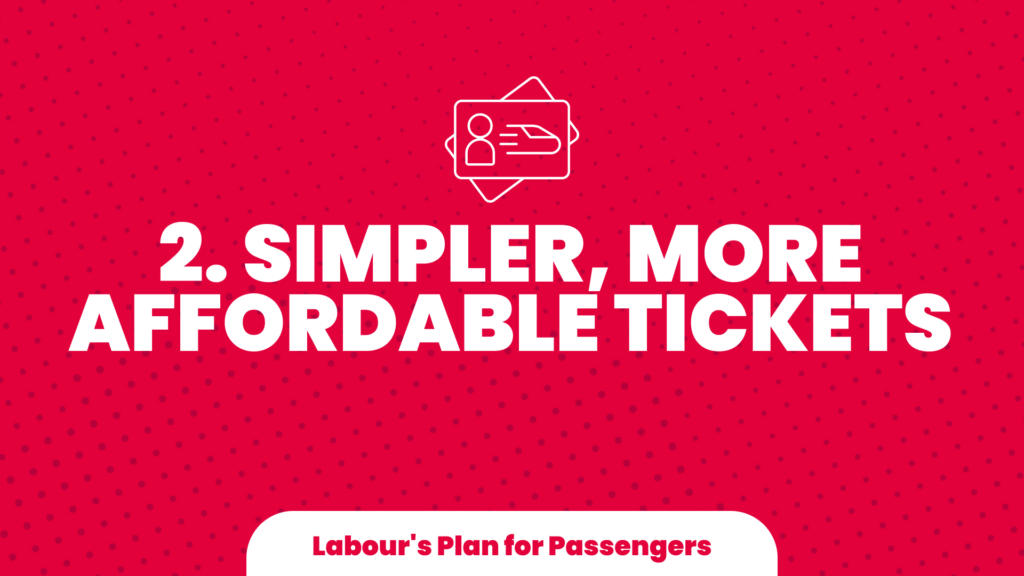
2. Simpler, more affordable tickets
In line with the long-term strategy set by the Secretary of State for Transport, Great British Railways will simplify the ticketing system and drive innovation across the network, replacing the current multitude of platforms and myriad array of fares, discounts and ticket types and maximising passenger growth. We will also ensure that ticketing innovations like automatic compensation, digital pay-as-you-go and digital season ticketing are rolled out across the whole network.
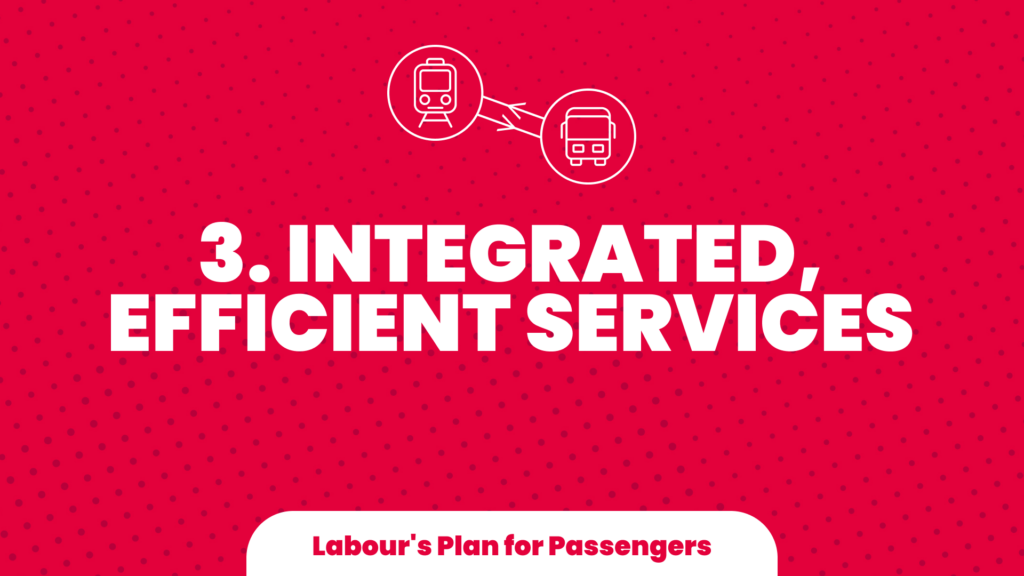
3. Integrated, efficient services
With our railways unified under a single directing mind and brand, it will be more straightforward to integrate the railways with other forms of transport.
In Switzerland, for example, timetabling is carefully coordinated across different modes of transport, according to an hourly rhythm of services which is easy to understand, navigate and rely upon, by a single body – the publicly-owned federal railway, SBB. This model is viewed as world-leading and has led to both significant passenger growth and increased workforce productivity.
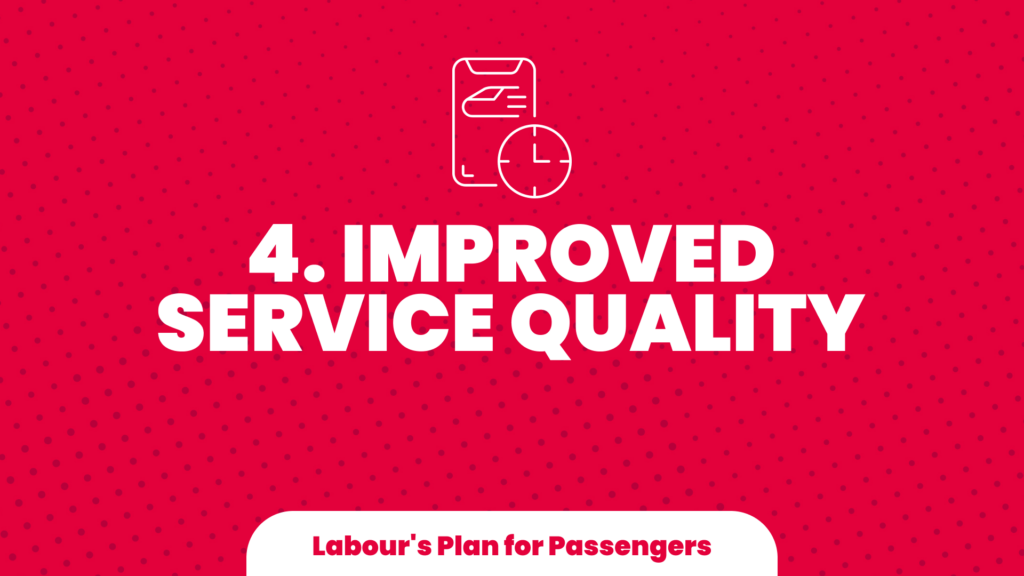
4. Improved service quality
Passengers have a right to expect quality service. Comfortable journeys, clean carriages, clean and functioning toilets, power sockets, tables, catering, adequate Wi-Fi (and, in due course, 5G) are essentials for improving passenger experiences and improving productivity for working passengers.
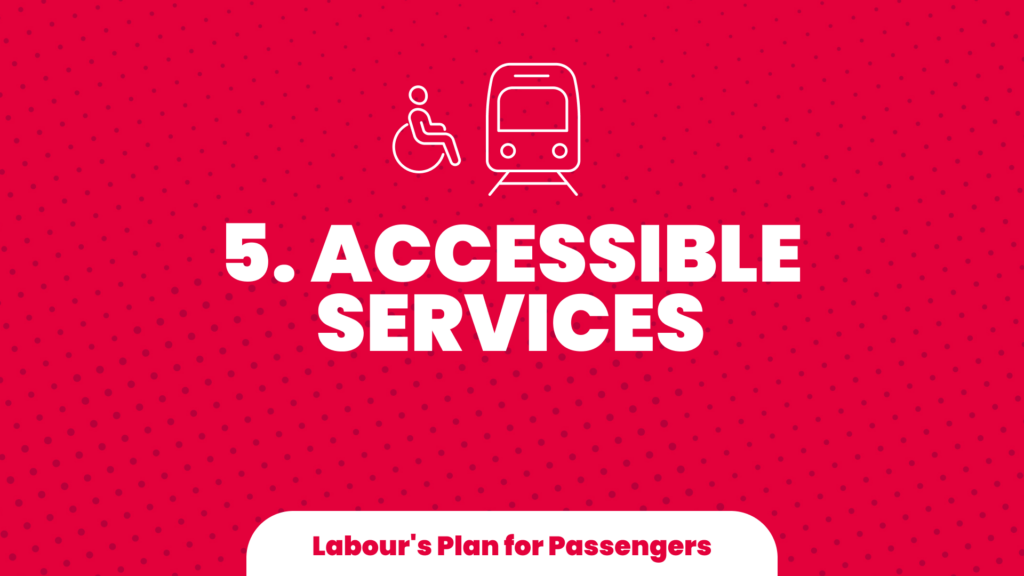
5. Accessible services
Labour will take advantage of the benefits of a unified network to deliver a more reliable and consistent experience for passengers with accessibility needs. We will also use the ability to plan across the whole rail network to better target investment to raise accessibility standards across the board and give local authorities more control over their transport networks to better consider accessibility needs for door-to-door journeys.
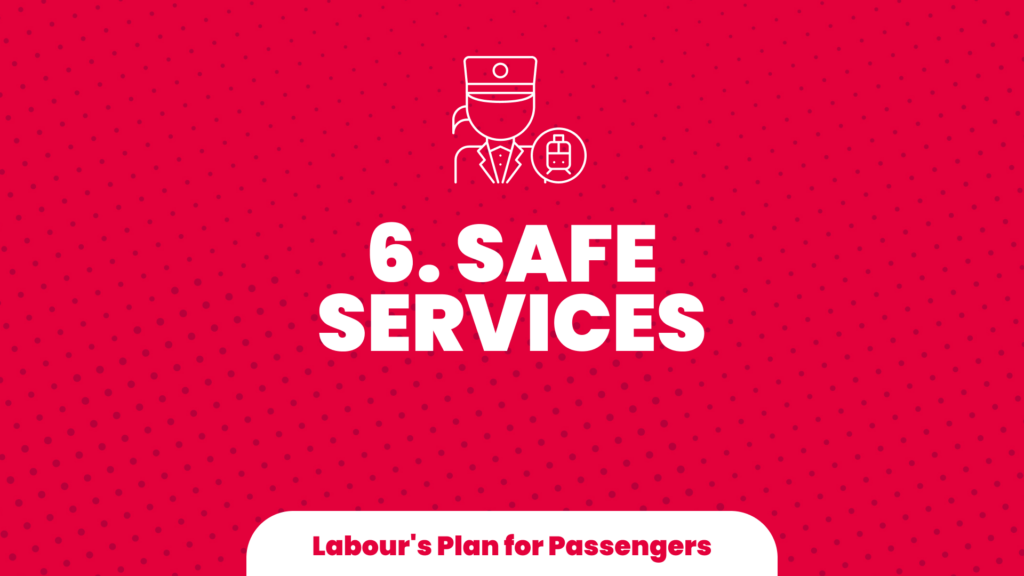
6. Safe services
We will improve rail safety through seamless, reliable timetabling, better integration with other modes of transport to reduce waiting times between connections, and working with the police on staffing where there could be safety issues. We will also seek to accelerate, target and better standardise the deployment of technologies across the network to enhance safety, promote reporting of crimes and ensure evidence is recorded.
Getting Britain Moving: Labour's Plan to Fix Britain's Railways
Read the full report here

Volunteering with Labour
Help us win
Be part of the team that delivers a Labour government.
